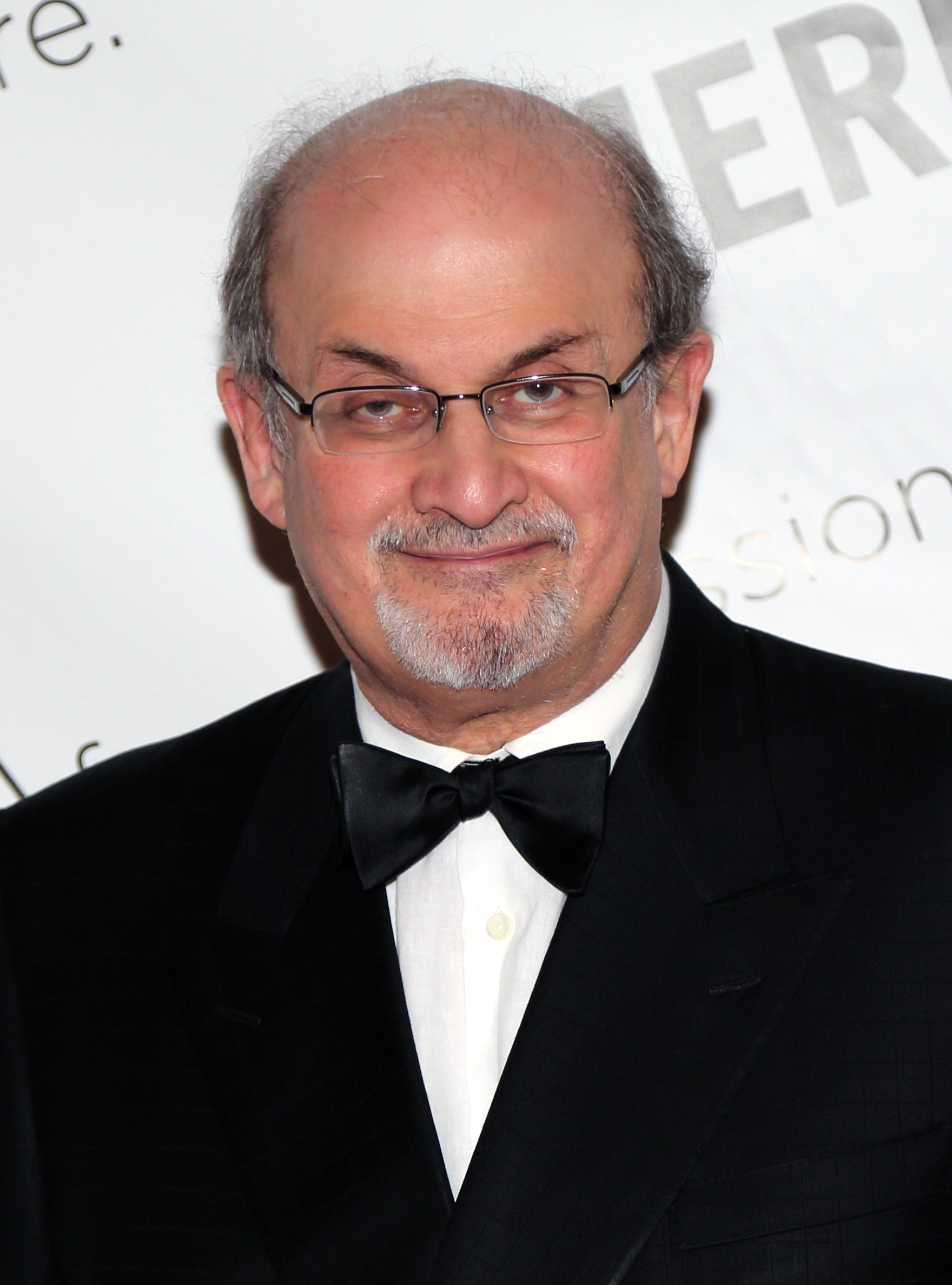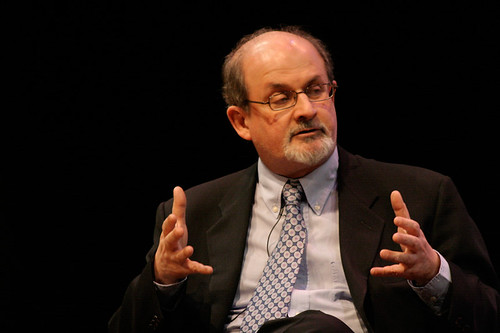US police confirm Rushdie suffered an ‘apparent stab wound’ to the neck but say his condition is not yet known.
Salman Rushdie, the author whose writing led to death threats from Iran in the 1980s, has been attacked as he was about to give a lecture in southwestern New York state.
Police said Rushdie was apparently stabbed in the neck on Friday after an assailant attacked him and an interviewer.
“Rushdie suffered an apparent stab wound to the neck, and was transported by helicopter to an area hospital. His condition is not yet known,” New York State Police said in a statement.
“The interviewer suffered a minor head injury. A State Trooper assigned to the event immediately took the suspect into custody.”
The Reuters news agency cited a spokesperson for Rushdie as saying that he is in surgery without providing details. New York Governor Kathy Hochul also said Rushdie was alive and “getting the care he needs at a local hospital”.
An Associated Press news agency reporter witnessed a man storm the stage at the Chautauqua Institution and begin punching or stabbing Rushdie as he was being introduced. The author was taken or fell to the floor and the man was restrained.
Stacey Schlosser, who witnessed the attack, told AP that Rushdie was stabbed six to eight times before the attacker was restrained.
“Nobody knew what to do. Nobody knew how to react. I mean, there were tons of people that rushed the stage,” Schlosser said.
Rushdie’s book The Satanic Verses has been banned in Iran since 1988, as many Muslims consider it to be blasphemous. A year later, Iran’s late leader Ayatollah Ruhollah Khomeini issued an edict calling for Rushdie’s death.
Iran has also offered more than $3m in reward for anyone who kills Rushdie. Iran’s government has long since distanced itself from Khomeini’s decree, but anti-Rushdie sentiment lingered. In 2012, a semi-official Iranian religious foundation raised the reward for Rushdie from $2.8m to $3.3m.
Rushdie dismissed that threat at the time, saying there was “no evidence” of people being interested in the reward. That year, he published a memoir, Joseph Anton, about the ordeal. The title came from the pseudonym Rushdie had used while in hiding.
Rushdie rose to prominence with his Booker Prize-winning 1981 novel Midnight’s Children, but his name became known around the world after The Satanic Verses.
The Chautauqua Institution, about 90km (55 miles) southwest of Buffalo in a rural corner of New York, is known for its summertime lecture series. Rushdie has spoken there before.
The British-Indian author, who currently lives in the United States, had been previously put under police protection because of threats to his life. He has published dozens of books. The UK knighted him in 2007, which sparked protests in several countries in the Muslim world.
Advocacy groups and politicians in the US and the UK denounced the incident on Friday. British Prime Minister Boris Johnson said Rushdie was stabbed “while exercising a right we should never cease to defend”.
Pen America, a writers’ association that promotes freedom of expression, which was previously led by Rushdie, described the assault as a “premeditated attack”.
“PEN America is reeling from shock and horror at word of a brutal, premeditated attack on our former President and stalwart ally, Salman Rushdie, who was reportedly stabbed multiple times while on stage speaking at the Chautauqua Institute in upstate New York,” the group’s CEO Suzanne Nossel said in a statement.
“We can think of no comparable incident of a public violent attack on a literary writer on American soil.”
Authors, publishers and government officials around the world have expressed their shock over the attack on author Salman Rushdie.
Khaled Hosseini, the author of The Kite Runner, said he was horrified by the incident.
US Senate Majority Leader Chuck Schumer, who represents New York, called the assault on Rushdie an “appalling” attack on “freedom of speech and thought”.
“I hope Mr. Rushdie quickly and fully recovers and the perpetrator experiences full accountability and justice,” Schumer wrote on Twitter.
What’s been happening?
Here’s a summary of some of the latest developments following the attack on author Salman Rushdie in the US state of New York.
- Rushdie’s agent says his client has been undergoing surgery after being airlifted to hospital. The agent had no more information to share about his Rushdie’s condition
- The novelist was due to give a lecture at the Chautauqua Institution alongside Henry Reese, the founder of a non-profit organisation which protects persecuted writers
- Both men were attacked before the event began; eyewitnesses described a mask-wearing assailant storming the stage with what appeared to be a knife
- Rushdie is said to have been struck many times in the neck and torso area; Reese received minor head injuries
- Police say they took a suspect into custody at the scene
- The New York state governor has credited a police officer with saving Rushdie’s life
- Condemnation of the attack and messages of support have come from far and wide, including from US Senate Majority Leader Chuck Schumer and authors Neil Gaiman and JK Rowling
Who is Salman Rushdie?

The Indian-born author has enjoyed great success during his literary career of five decades – but he has also faced death threats for some of the content in his work.
It was Rushdie’s fourth novel, The Satanic Verses, which became his most controversial book – and he was forced to go into hiding as a result of the backlash.
Let’s take a closer look at the 75-year-old writer’s life:
- Born in Bombay – modern-day Mumbai – in 1947, he was educated in England and allowed his Muslim faith to lapse
- His acclaimed second novel, Midnight’s Children, won the Booker Prize in 1981
- His book The Satanic Verses sparked international turmoil and sometimes deadly protests following its publication in 1988. Some Muslims accused Rushdie of blasphemy
- Rushdie went into hiding for nine years after receiving death threats
- A year after the book’s publication, Iran’s then supreme leader Ayatollah Ruhollah Khomeini issued a fatwa – or decree – calling for his assassination
- Others who were involved with translating the book were attacked, even killed
- Iran stopped formally backing the fatwa in 1998
- Rushdie continued writing books afterwards and published an account of the controversy in 2012
- He has two children, lives in the US, and was knighted by the Queen in 2007 for his services to literature
Source: AL JAZEERA and BBC


